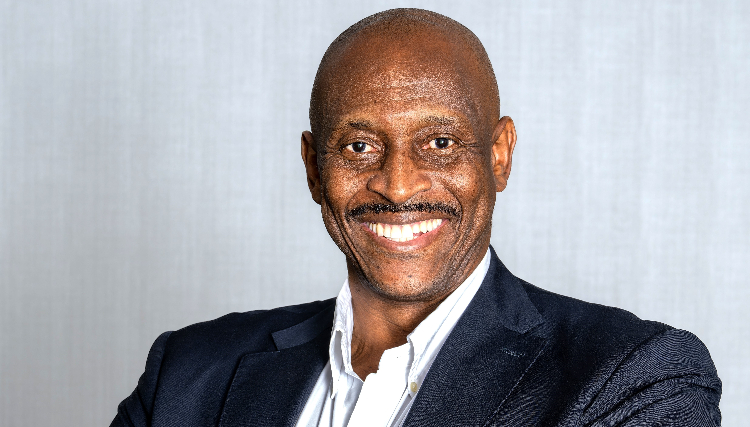Rugby’s pathway to Africa’s future

By President of Rugby Africa, Herbert Mensah
Saturday April 6 marks International Day of Sport for Development and Peace. As we reflect on this day, it is crucial to explore the potential impact of sport in Africa.
The African Development Bank projects that Africa is set to grow to 2.4 billion people by 2050. Therefore, prioritizing an investment in human potential is crucial, as it will define the future of the continent.
Africa can harness the power of sport to champion human potential, serving as a tool to drive the African continent towards greatness for generations to come.
Sport serves as a universal language, through popularity it can transcend cultural, social, economic and political barriers.
This year’s theme: ‘Sport for the promotion of peaceful and inclusive societies’ holds particular relevance in Africa. The impact of sport has the power to unite individuals, bringing joy to participants and spectators alike. Yet the true power of sport, lies in its ability to transform societies.
South Africa’s Springboks, fourth time Rugby World Champions, are a testament of the unifying influence of Rugby.
During the 2023 Rugby World Cup, the entire African continent united in support of South Africa on the global stage, highlighting a collective passion to celebrate and develop talent emerging from the continent itself.
Whether on the field or pitch, the power of sports is visible. It fuels economic development through the flourishing sports tourism industry. It empowers youth by instilling positive values. It champions gender equality, breaking down barriers and eradicating stigma. It fosters social inclusion, promoting tolerance and easing tensions in divisive environments.
The African Development Bank reports that Africa will remain the world youngest region, with a median age of 25.
An investment in the youth is crucial for the sustainability of Africa, as a prosperous Africa paves the way to peace. Within the realm of sports, Rugby emerges as unique pathway to empower the youth.
Anchored in values of teamwork, unity, integrity, passion, solidarity and discipline, Rugby serves as cornerstones for personal and professional development with enduring impact.
Ultimately, early exposure to sports will prepare the youth of Africa to become leaders and ambassadors of positive change in their communities.
It is our duty to equip the next generation to not only navigate the challenges of uncertainty and competitiveness but to thrive amidst them, fostering a brighter future for Africa and inspire generations to come.
In a society marked by divisions, sport cultivates an inclusive landscape. The passion for the games takes priority, differences are not seen as obstacles, but rather as opportunities for greatness.
Rugby’s embrace of diversity, turning differences into strengths has the powerful impact of breaking down the societal norms that women are often subjected to.
For example, the South African women’s national rugby team, where players exhibit a remarkable 33 cm height differential from the shortest to the tallest player, and a significant 61 kg weight gap separates the lightest from the heaviest members.
When compared to the realm of football, the contrast becomes even starker.
The South African women’s national football team boasts a considerably more consistent size and shape among its players, with a mere 12 cm height range and a modest 27 kg weight variance. This inclusivity cultivates a sense of unity and belonging that transcends borders and celebrates the diversity of humans, nurturing a sense of self-worth, fostering long term empowerment, while creating lifelong friendships.
Beyond social impact, sport can function as a powerful catalyst for economic growth and international dialogue.
Through strategic investments in sports infrastructure and competition frameworks, we forge the way for economic opportunities, generating employment and awakening local economies in host nations.
Sports tourism emerges as a magnet, drawing travelers from around the globe with the economic purchasing power to experience Africa’s diverse and rich cultural heritage. It acts as a unifying force, fostering connections among people of different backgrounds and nationalities.
As enthusiasm for sports grows, it not only attracts local spectators but ultimately attracting attention on regional and national stages. This shared love for sports becomes a platform for cultural exchange, promoting understanding and appreciation for diverse perspectives.
In this way, sport serves as more than entertainment; it is bridge that connects people and creates ties to the community, fostering unity and collaboration.
Aligning with the pursuit of the United Nation’s Sustainable Development Goals, Africa has the opportunity to tap into the transformative power of sports, acting as a key to unlock the full potential of the continent.
This can only be achieved if governments take local action and assume accountability to harness the full potential of Rugby in reducing inequality, empowering the next generation and igniting a new age of inclusivity.
We must collectively drive change, recognizing that investing in Africa’s future is our shared responsibility. This calls for collaboration among all stakeholders, with a long-term commitment to funding, policy development, infrastructure enhancement and the advancement of competition structures.
On this International Day of Sport for Development and Peace, let us not only embrace the power of sports to reshape our societies but let us actively engage on unleashing it. Sport possesses the remarkable ability to positively impact our world, a source of hope, uniting people in ways that few other forces can achieve.

